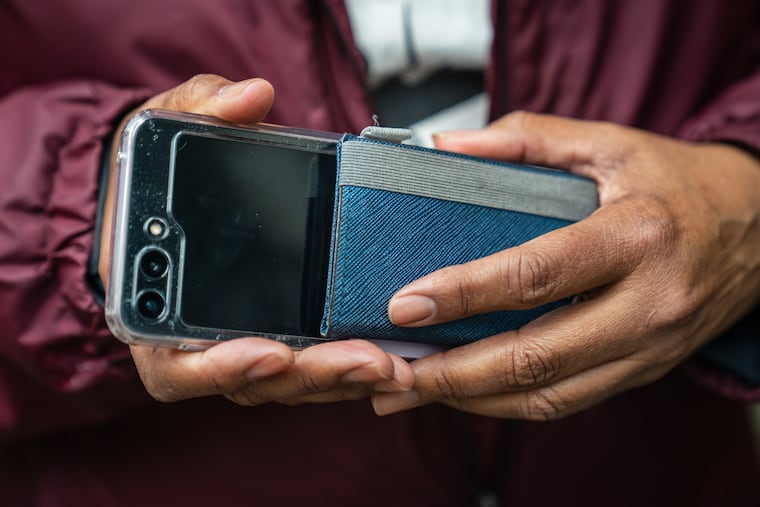Digital payments aren’t just for Gen Z. These Baby Boomers prefer phones and watches to cash and credit cards.
Their embrace of digital technology is sometimes met with astonishment and even trepidation from cashiers and fellow shoppers.

Kim Cooper hates having to carry around a physical credit card.
The 65-year-old has been forced to do so for the past few months, she said, because of an issue with her new smartphone’s digital wallet.
“Now I have to be one of those idiots pulling out a card,” Cooper said. “It’s so frustrating.”
If she can’t figure out a fix for her mobile-wallet issues, she said, she’ll either get a new phone or buy a smartwatch that will allow her to make payments on her wrist.
“I just like being streamlined,” said Cooper, a Fairmount resident who runs a pet-sitting business. “That is why years ago I stopped carrying a wallet.”
As a Baby Boomer, Cooper is in the minority. Among consumers 60 and older, about a quarter use digital wallets, according to a recent survey by the financial research firm Pymnts Intelligence. That’s compared to nearly 80% of Gen Zers — the oldest of whom turn 27 this year — and 67% of millennials in their late 20s and early 30s who use the technology.
Several local consumers in their 60s and 70s told The Inquirer last month that they prefer physical cards and cash, in part because they don’t trust technology with their financial information. For some, it’s also a matter of sticking to old habits.
» READ MORE: No wallet, no problem: Why Gen Z and millennial Philadelphians are using their phones to pay for everything
“I still have one friend who is paying with nickels and dimes,” Cooper said. If the friend owes $10.27, for example, “she is getting the cash together and counting out 27 cents.”
For Baby Boomers who do use digital wallets, they can’t imagine going back. Some in Philadelphia say they’ve always been interested in using the latest technology, whether it was the Commodore 64 home computer in the 1980s or the Netscape browser in the 1990s.
Today, their embrace of digital technology is sometimes met with astonishment and even trepidation from cashiers and fellow shoppers.
“Sometimes you will get people who are like ‘Oh dear,’” said Cooper, who said she got a particularly shocked reaction from another Whole Foods customer when she recently signed up to use their palm payment technology. That allows customers to check out with a scan of their hand, no phone or wallet required.
“I was in Home Depot one day and I paid with my watch and the guy behind me, who was about the same age as me, he was in awe,” said Mike Kirwin, 67, of Oxford Circle. “He was like ‘You paid with your watch?’”
The cashier, who looked to be in her 20s or 30s, seemed similarly surprised when she looked up from the register.
But for Kirwin, paying with his Apple Watch has become second nature ever since he received the gadget in 2018. It was a retirement gift after a 36-year career with SEPTA and a present initially meant to help him track his daily seven-mile walks more easily than on phone apps. It soon proved beneficial for everyday payments.
“It is so much easier with the watch because you don’t have to take the phone out of your pocket,” said Kirwin, who only carries a small money clip with a single credit card and some cash.
For years before that, he used the digital wallet on his phone. A retired manager in SEPTA’s video evidence unit, he said he has always been the “IT guru” in his friend group, though he makes an effort not to “preach” or try to convert people to the technology if they’re anxious about it. He just answers their questions objectively.
In terms of the benefits of digital wallets, “the biggest thing is security,” said Kirwin. He feels safer not taking his money clip out in public, he said, and regularly monitors his bank accounts online, including with alerts for transactions over $5.
Marlene Smolen, 71, said she, too, feels more secure using her Apple Wallet. Knowing she can usually pay with her phone, she recently switched from carrying a large pocketbook to a smaller crossbody bag.
“It’s a convenience thing,” said Smolen, a retired Realtor who lives in Queen Village. To her and her husband, the digital-wallet technology “comes easier to us than some of our kids.”